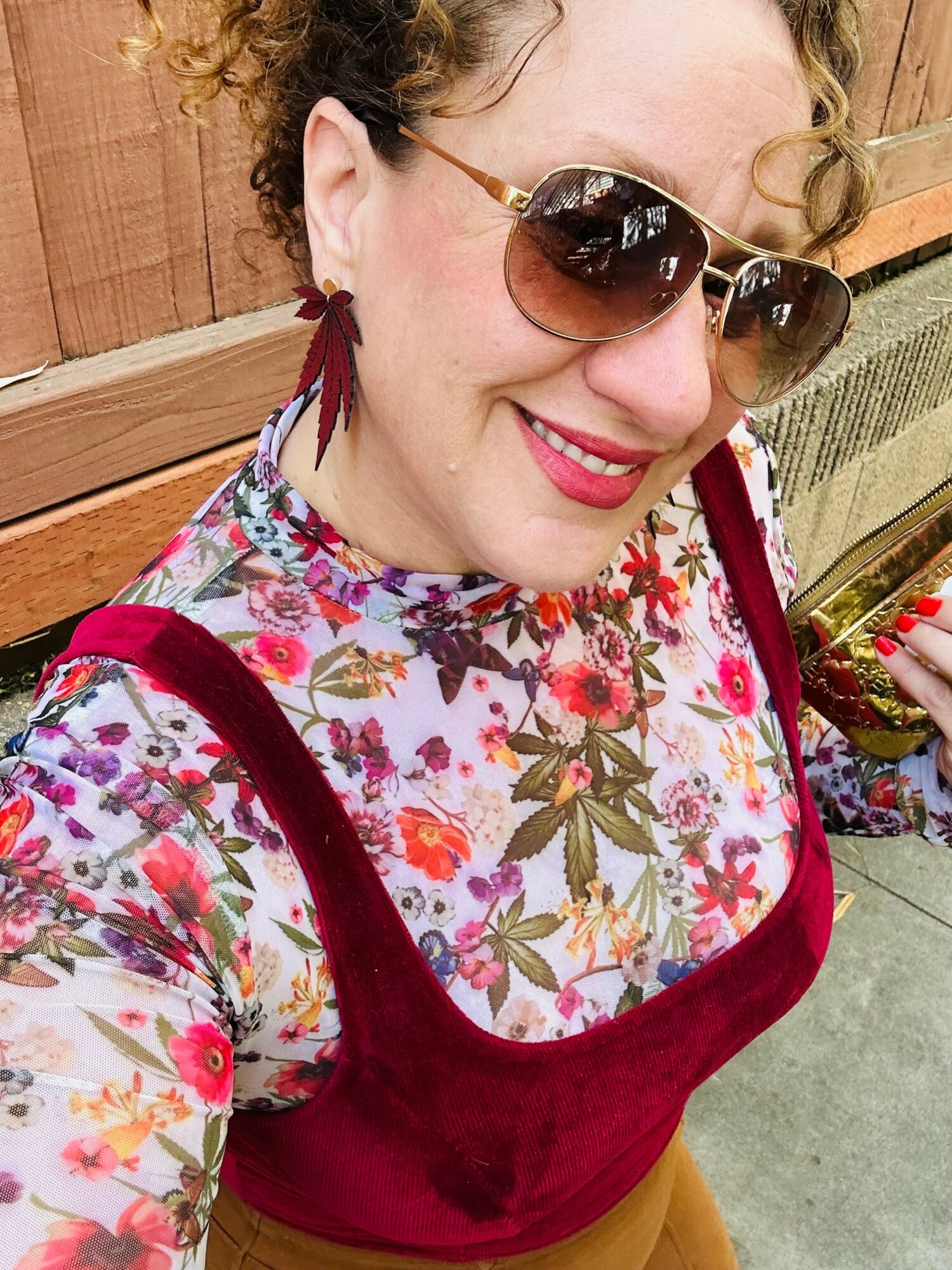

We’re looking forward to introducing you to Ishqa Hillman. Check out our conversation below.
Good morning Ishqa, it’s such a great way to kick off the day – I think our readers will love hearing your stories, experiences and about how you think about life and work. Let’s jump right in? What are you being called to do now, that you may have been afraid of before?
Write. I feel like I’m being called to step into journalism in a new way. For the past 6 years, I focused on creating The Canna Boss Babes and the podcast to amplify other voices in my community. Now, I’m being invited to contribute as The Canna Boss Babes to established publications like DTLA Weekly, Cannabis News Weekly, and soon I’ll have a piece published in Skunk Magazine’s California Cannabis Guide.
That article, on The Network Show—an annual cannabis B2B trade show—is something I’m truly proud of because it represents a shift for me. For a long time, I hesitated because I don’t have formal journalism training. I thought that meant I couldn’t or shouldn’t do it, and instead leave it for the professionals. But now I realize my perspective and experience bring real value, and I’m excited about the stories I can share and who they will reach in this new format.
Can you briefly introduce yourself and share what makes you or your brand unique?
My name is Ishqa, and I’m the founder of The Canna Boss Babes, a media and community platform that brings entrepreneurs, creators, and brands together through storytelling, education, and collaboration. Over the past five years, I’ve hosted nearly a thousand interviews worldwide, building deep connections across the cannabis industry and beyond.
In addition to hosting our podcast and producing events, I provide coaching and consulting for entrepreneurs who want to launch, grow, or streamline their businesses. My work includes operations support, marketing strategy, and strategic introductions to help brands gain visibility and build authentic relationships.
While cannabis is the foundation of my work, about half of my clients are outside the industry—but they share the same entrepreneurial spirit and commitment to growth.
Appreciate your sharing that. Let’s talk about your life, growing up and some of topics and learnings around that. What’s a moment that really shaped how you see the world?
A defining moment for me has been navigating the shift from being someone with social anxiety to becoming more forward-facing through my podcast and community work. When you build a platform, you attract attention—and while most connections are genuine, I’ve learned the hard way that not everyone comes with good intentions.
I’ve experienced betrayal from people I trusted and even situations where I was targeted because of my visibility. Those moments were painful, but they shaped how I approach relationships and business today. They taught me the importance of discernment, boundaries, and aligning with people who share my values.
Now, I look for authenticity over optics. Every connection matters to me, but I’ve learned to ask, “Is this person here for genuine collaboration, or just for what they can take?” It’s been an empowering lesson because it allows me to keep leading with an open heart—while also protecting my energy and the community I care about.
When did you stop hiding your pain and start using it as power?
Honestly, I think I’ve always turned pain into power, even before I had the words for it. My childhood was filled with trauma—I experienced abuse in every form before the age of five. For a long time, I didn’t even recognize how much pain I was carrying because it had become my normal.
About ten years ago, cannabis became a turning point for me. The first time I truly exhaled after consuming, I thought, “Wow, waiting to exhale isn’t just a movie—it’s real.” I laughed at the thought, and then I realized how sad it was that I’d been holding my breath, both physically and emotionally, for so long. Cannabis helped me reset patterns and mindsets that were deeply ingrained. It also connected me to a community that has been life-changing ever since.
Another pivotal moment came two years ago, when I was physically assaulted by a partner after a long-term relationship. I made the difficult decision to share that experience publicly because I value truth over appearances. Many people questioned me for being so open, but that transparency mattered—I had five women reach out to say my story helped them escape abusive relationships of their own.
That experience reinforced something I deeply believe: shame thrives in silence. And often, the shame people carry isn’t even theirs—it’s a burden left by someone else’s actions. The only way to release that is through honest conversations and grace—for ourselves and for each other. For me, being truthful, even when it’s uncomfortable, is how I reclaim my power and help others do the same.
Sure, so let’s go deeper into your values and how you think. Is the public version of you the real you?
Absolutely. What you see is what you get. The only difference between the public version of me and the one at home is the glam. If you catch me between events, I’m probably rocking a messy bun, boy shorts, and a tank top—but the person is the same.
I really pride myself on being authentic because I believe that’s the most powerful way to live. One of my personal mantras is, “I am the most free, the most me I can be.” I want people to know that perfection isn’t the goal—we are already perfect in our imperfection. If my openness inspires someone else to show up as their true self, then I’ve done something right.
Thank you so much for all of your openness so far. Maybe we can close with a future oriented question. What do you understand deeply that most people don’t?
I’ve come to understand that cannabis is, before anything else, a medicine, and that perspective matters. 80% of disabilities are invisible, which means many of us are walking around carrying struggles no one can see.
In our industry—and in life—I wish more people recognized that we need to see each other as patients and with patience. We’re all human, dealing with our own battles, traumas, and responsibilities. If we approached each other with more compassion and empathy, we could create a stronger, more supportive community. At the end of the day, we’re not just businesses or brands—we’re people.
Contact Info:
- Website: https://www.thecannabossbabes.com
- Instagram: https://www.instagram.com/thecannabossbabes/ and https://www.instagram.com/ishqathebossbabe/
- Linkedin: https://www.linkedin.com/in/ishqahillman-thecannabossbabes/
- Twitter: https://x.com/cannabossbabes
- Facebook: https://www.facebook.com/thecannabossbabes
- Youtube: https://www.youtube.com/@thecannabossbabes
- Other: Spotify https://open.spotify.com/show/4VIp1dvwBaczoyNqxLssUS?si=e0cc2ede34f148e0
Apple Podcasts https://podcasts.apple.com/us/podcast/the-canna-boss-babes-live/id1645613733
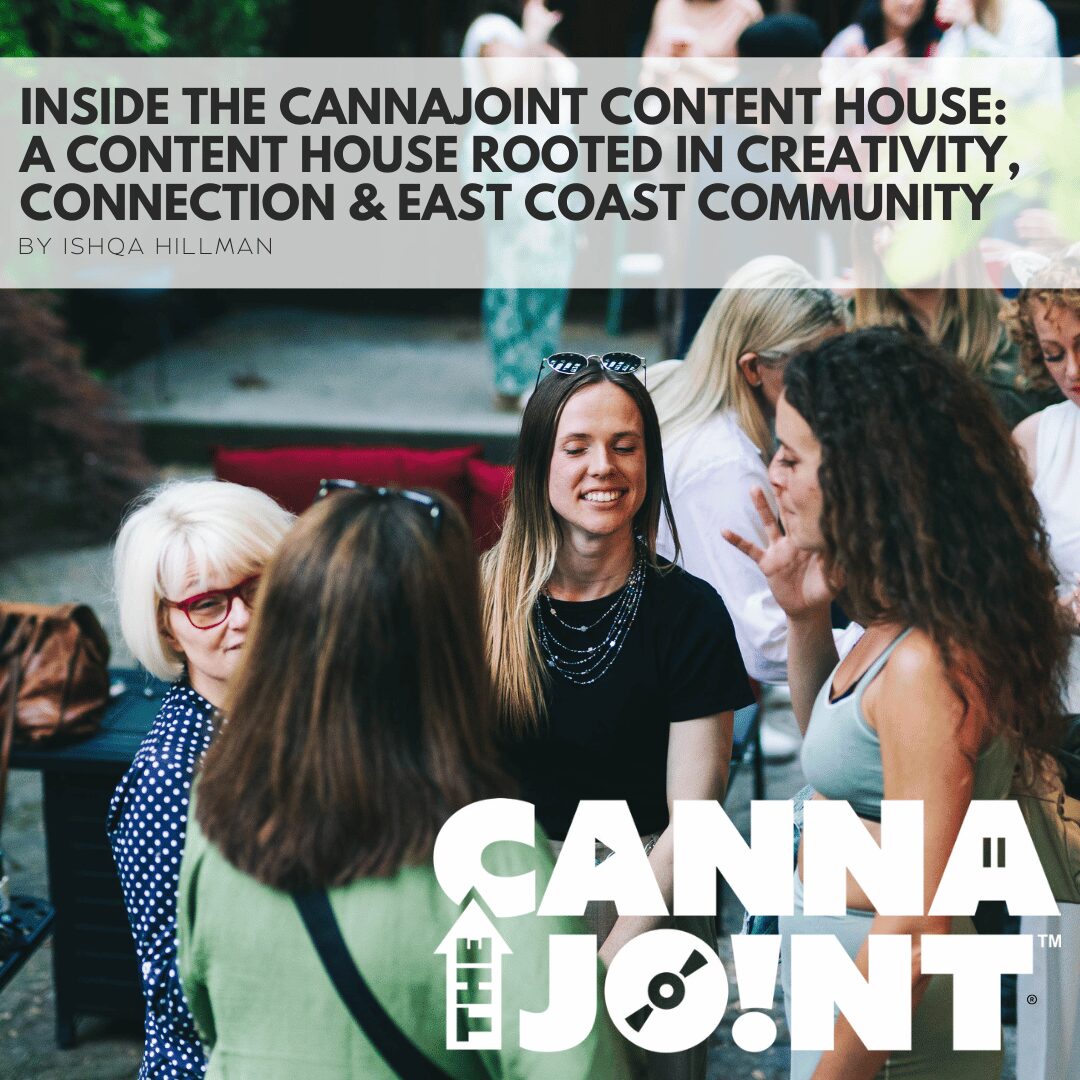
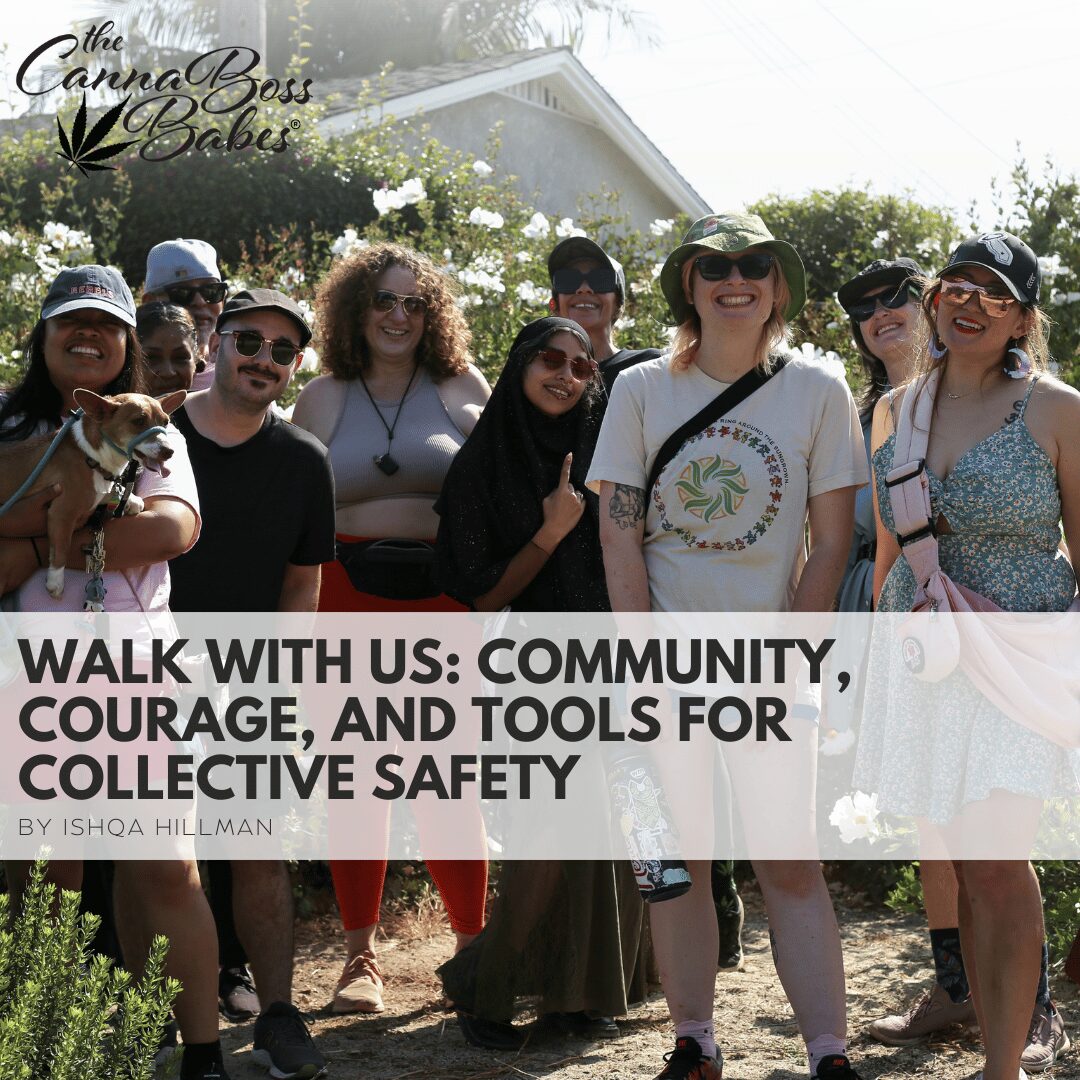
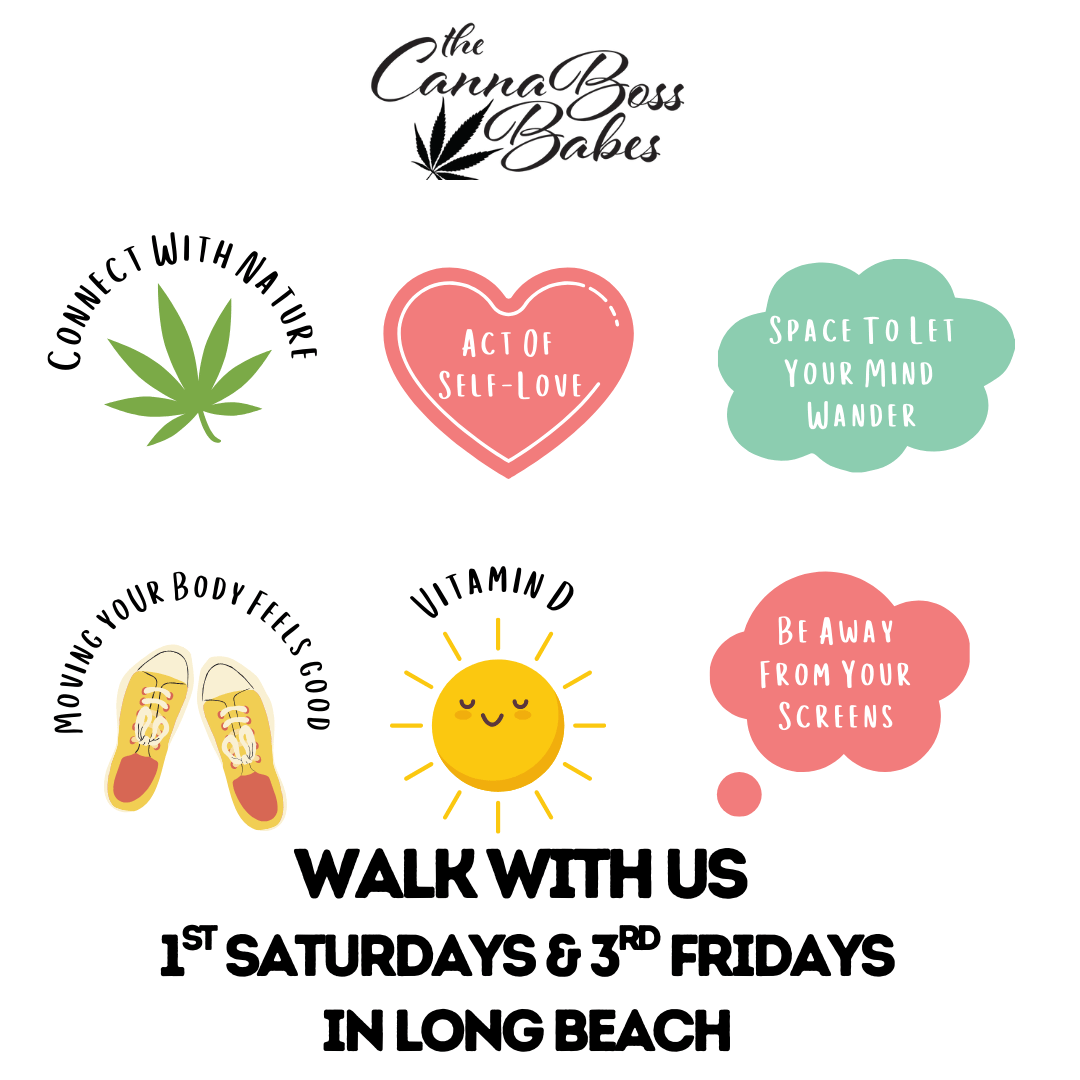
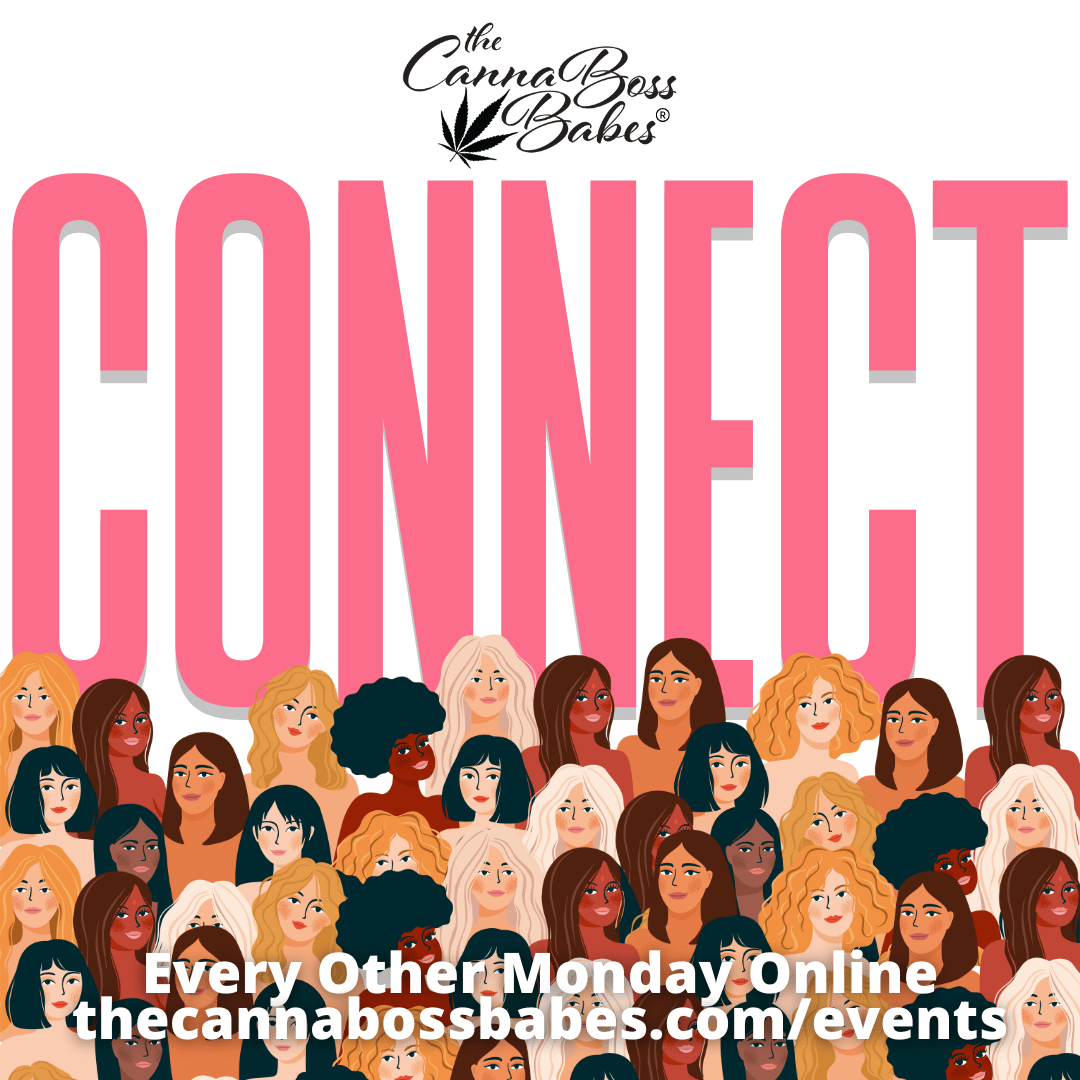
Image Credits
Walk With Us Blog photo courtesy Juan Rosales @thismomentneveragain














